In the field of child development, there’s always more to learn. A master’s degree can help you take your career to the next level.
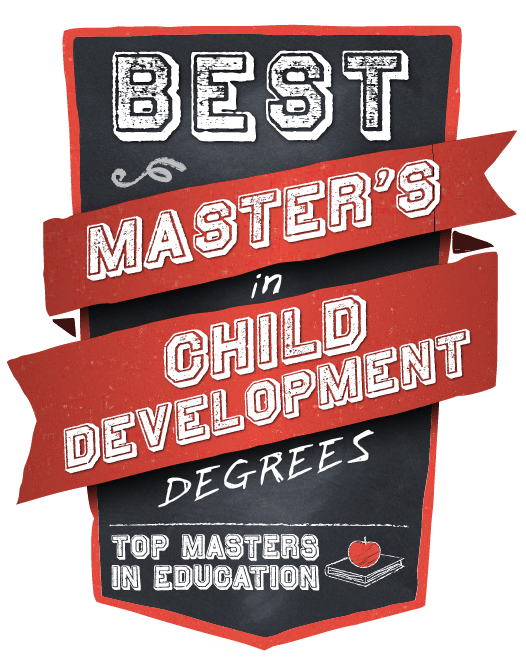 As a child development expert, you’ll have the chance to shape how children see and understand the world. This work demands an understanding of developmental psychology, teaching pedagogy, and early emotional and social growth in infants and children.
As a child development expert, you’ll have the chance to shape how children see and understand the world. This work demands an understanding of developmental psychology, teaching pedagogy, and early emotional and social growth in infants and children.
How do you gain the advanced, specialized skills required to be an outstanding child development professional? Any one of the master’s degree programs on our list can help you become an expert in your field.
What kind of master’s degree in child development should you get?
There’s more than one way to earn a college degree. Here, we cover the best traditional, on-campus degree paths. Many of these programs offer weekend and evening classes that take into consideration the schedules of working professionals.
But if you prefer even more flexibility and convenience, take a look at our ranking of the Best Online Master’s in Child Development Degrees.
How much money do people with a master’s degree in child development earn?
Here’s how PayScale breaks down the average annual salaries for some of the most common job titles for people with a Master of Science in Child Development:
- Developmental Therapist: $45,847
- Child Care Center Director: $47,030
- Child Welfare Specialist: $36,080
- Child Life Specialist: $43,059
What can you do with a degree in child development?
Several of the programs we’ve included here—especially those that lead to an Early Childhood Education degree—are intended for classroom teachers working in pre-kindergarten through grade 3. But teaching isn’t the only aspect of the child development field.
Depending on the program you choose, your master’s degree could qualify you to serve as an educational advocate, curriculum coordinator, community college instructor, non-profit manager, or daycare center director.
What are the requirements for a master’s degree in child development?
Some of the programs in our ranking are designed to lead to initial teaching licensure. Others provide a pathway to advanced licensure or additional endorsements for certified teachers. Still others don’t culminate in any sort of certification, and instead offer a broader path that can lead to roles in social service agencies, educational organizations, child care centers, and other settings.
Each one of these programs will have specific requirements and expectations. For example, you may write a thesis, design an action research project, or participate in a capstone clinical experience.
What are the best master’s degrees in child development?
To compile this ranking, our research team examined a number of factors: namely, student-reported satisfaction, return on tuition investment, academic rigor, and institutional reputation. Data is sourced from the websites of individual colleges and universities as well as from highly reputable sources like PayScale, U.S. News & World Report, and the IPEDS database.
We’ve looked at master’s degree programs in Child Development as well as degree programs in closely related disciplines (like Early Childhood Education and Child and Family Development). Any of the exceptional programs on our list can open up new career possibilities in the field of child development.
1. University of Alabama at Birmingham
Overview
The University of Alabama at Birmingham ranks among the top 0.6 percent of universities in the world, according to the Center for World University Rankings. As a comprehensive doctoral institution, UAB is widely renowned for its scholarship and research in healthcare, nursing, business, and teacher education. The School of Education at UAB has a strong record of success: Of the last eight winners of the Alabama Teacher of the Year award, six have been UAB alumni.
Program Features
The UAB School of Education offers an on-campus alternative master's degree program in Elementary Education. This program features courses on child development, developmental reading, primary math methods, teaching pedagogy, classroom management, and other critical skills for educators of young children. The degree track requires between 49 and 58 credit hours. Specific course titles include:
- Child Development and Family Relations
- Systemic Reflections about Teaching
- Learning Environments
- Measurement and Evaluation
Notables
Students may enroll in the Elementary Education master’s degree program on a full-time or part-time basis. The alternative master’s program in Elementary Education leads to a Class A certification for kindergarten through grade 6. Online options from UAB include a traditional (not leading to initial certification) master’s program in Elementary Education, and a traditional master’s program in Early Childhood Education.
2. Northern Arizona University
Overview
Established in 1899, Northern Arizona University enrolls over 30,000 students in more than 150 degree programs. The main campus of NAU is in Flagstaff, which came in at number four in USA Today’s ranking of the Best Small College Towns. The highly acclaimed College of Education at NAU offers outstanding programs for current and aspiring teachers, counselors, school psychologists, and school leaders.
Program Features
NAU’s program offers three emphasis tracks: Early Childhood Teacher, Early Childhood Leadership, and Early Childhood National Board Preparation. At least 30 credit hours are required to earn this M.Ed. degree. Students in the program are typically practicing teachers of young children. Depending on the emphasis area that a degree candidate selects, coursework may include:
- Development of Children’s Logical Concepts
- Parental Involvement in Education
- Foundations of Reading Instruction
- Early Childhood Curriculum
Notables
The Early Childhood Education program at NAU is nationally recognized by the National Association for the Education for Young Children (NAEYC). To qualify for admission, students must have an undergraduate GPA of at least 3.0 on a 4.0 scale. The M.Ed. in Early Childhood Education is available through the main NAU campus in Flagstaff and a satellite campus in Yuma. The degree is also available fully online.
3. Mercer University
Overview
Serving over 8,600 students enrolled in 12 schools and colleges, Mercer University ranks among the top tier of national research universities, according to U.S. News & World Report. For the 15th consecutive year, Mercer was recently featured in Princeton Review’s “The Best 382 Colleges.” The Early Childhood Education program at Mercer will provide graduates with an understanding of the social, behavioral, emotional, cognitive, and physical needs of young children.
Program Features
The 49-credit hour program from Mercer culminates in a Master of Arts in Teaching for Early Childhood Education. Graduates of the program will earn initial teaching certification for pre-kindergarten through grade 5. The program incorporates numerous opportunities for fieldwork, including a required Initial Field Experience, a Mentored Practicum, and a student teaching placement or internship. The curriculum features courses such as:
- Planning and Organizing Instruction in Early Childhood Education
- Child Development and Learning
- Teaching Exceptional Learners
- Creative Teaching and Learning in Early Childhood Education
Notables
Coursework for the M.A.T. in Early Childhood Education is available through Mercer's Atlanta Campus and the Henry County Regional Academic Center. Classes are based on a 16-week semester calendar, and each class meets one evening per week. Students may enroll in the program on either a full-time or part-time basis.
4. Brenau University
Overview
The main campus and the residential Women’s College of Brenau University are located in Gainesville, Georgia. Brenau also operates coeducational campuses in Augusta, Norcross, and Fairburn in Georgia, as well as in Jacksonville, Florida. Both the Princeton Review and U.S. News & World Report have recognized Brenau as one of the top higher education values in the Southeast. The College of Education has been committed to outstanding teacher preparation programs since Brenau was founded in 1878.
Program Features
Brenau offers programs leading to an M.A.T. in Early Childhood Education and an M.Ed. in Early Childhood Education. The M.A.T. degree path is intended for students who are pursuing initial teaching licensure. The M.Ed. degree path is designed for in-service, credentialed teachers. Required coursework for the M.A.T. includes the following:
- Understanding and Managing Learners
- Instructional Practices and Assessment
- Computer Literacy in Education
- Fine Arts Integration for Teachers
Notables
For their capstone experience, candidates for the M.A.T. degree will choose between a 12-credit hour internship and a nine-credit hour student teaching placement. The nine-credit student teaching option is to be completed in a single semester. The 12 credit hours for the internship may be earned over the course of several semesters. Depending on which capstone experience an M.A.T. student chooses, they will complete either 54 or 57 credit hours in total.
5. Stephen F. Austin State University
Overview
Stephen F. Austin State University was established in 1923 as the Stephen F. Austin State Teachers College. Today, SFA is a comprehensive university serving nearly 13,000 students as they pursue more than 120 fields of study. The University is located on a 417-acre campus in the historic East Texas town of Nacogdoches, where it continues its 95-year tradition of providing excellent teacher education programs.
Program Features
The Master of Education in Early Childhood Education from SFA is available both on campus and online. The program focuses on the specific challenges and needs of professionals who work with children from birth through age eight. Candidates for this degree will gain specialized competency in organizing programs for young children and families. Coursework for the M.Ed. degree will cover key topics such as:
- Child growth and development
- Theoretical underpinnings of classroom practice
- Development of learning strategies
- Sociological and psychological factors influencing behavior in young children
Notables
Applicants to the M.Ed. in Early Childhood Education program are not required to submit GRE scores. SFA also offers Master of Education degrees in Elementary Education, Secondary Education, Educational Leadership, Special Education, and Reading Specialist. The student-faculty ratio of SFA is 18:1. The average financial aid package per student is $12,677 a year.
6. The University of Toledo
Overview
Serving roughly 23,000 students, the University of Toledo is one of Ohio’s 14 state universities. UT offers more than 300 undergraduate, graduate, and professional academic programs, including nationally ranked programs in law, engineering, business, and occupational therapy. The teacher education programs at UT have also earned widespread recognition. The University operates NURTURES, a program that aims to improve science readiness scores among young children. For its work in NURTURES, UT earned a 2017 Christa McAuliffe Award for Excellence in Teacher Education.
Program Features
Presented by the acclaimed Judith Herb College of Education, the M.Ed. in Early Childhood Education from the University of Toledo can be earned on campus or 100 percent online. The degree is available as a track for licensed teachers and as a track for those pursuing initial licensure for pre-kindergarten through grade 3. Available coursework for this degree includes:
- Teacher/Parent-Child Relations
- Meaning and Development of Play Behavior
- Language and Concept Development
- Theory and Research in Early Childhood
Notables
To qualify for admission to this program, students must have a GPA of 2.7 or above on all undergraduate coursework. Applicants will submit three letters of recommendation and a statement of purpose. UT also offers graduate programs in Gifted and Talented Education, Special Education, and Higher Education.
7. California University of Pennsylvania
Overview
The Princeton Review has ranked California University of Pennsylvania as one of the best schools in the Northeast for 11 years running. Located 35 miles south of Pittsburgh, Cal U has a 294-acre campus widely known for its natural beauty. Cal U offers an extensive array of teacher education programs, including graduate degree tracks in Educational Leadership, English as a Second Language, School Psychology, Technology Education, Elementary Education, and numerous other disciplines.
Program Features
The Master of Education in Elementary Education focuses on working with children in pre-kindergarten through grade 4. This program is available as both a degree-only track for certified teachers and as a degree plus initial certification track for pre-service teaching candidates. The non-certification, degree-only track requires 45 credit hours, which candidates will earn through courses such as:
- Leadership and Management in Early Childhood
- Standards Aligned Curriculum, Instruction, and Assessment
- Evidence-Based Practices for Pre-K-8 Inclusion
- Advanced Psychology of Learning
Notables
Over 50 percent of the classes for the M.Ed. in Elementary Education can be taken online. The Elementary Education program at Cal U aligns with the standards of the National Association for the Education of Young Children (NAEYC). Students at Cal U may also pursue a fully online degree in Early Childhood Education (available to candidates with or without initial teaching certification).
8. Mercy College
Overview
Founded in 1950, Mercy College is a private, non-sectarian institution offering more than 90 undergraduate and master’s degree programs across five academic schools. Mercy has been recognized as one of the nation’s top 100 institutions for granting degrees to minority students, according to Diverse: Issues In Higher Education. Options for teacher education at Mercy include graduate degrees in Behavioral Science and Childhood Education, Psychology and Early Childhood Education, and Early Childhood Education (Birth through Grade 2).
Program Features
The Master of Science in Early Childhood Education requires a minimum of 39 credit hours. This program allows students to earn New York State teaching certification. Dual or triple certification tracks are also available for early childhood plus childhood education (grades 1 through 6) or childhood education and Students with Disabilities. For single-certification, pre-service teaching candidates, the degree curriculum will include:
- Educational Foundations from Diverse Perspectives
- Teaching English as a Second Language
- Foundations of Education for Students with Disabilities
- Approaches to Literacy: Early Childhood through Adolescence
Notables
The Early Childhood Education degree is available at four campus locations: Dobbs Ferry, Bronx, Manhattan, and Yorktown Heights. Students pursuing dual or triple certification will be responsible for additional coursework and field experience requirements. Applicants to this program must have an undergraduate GPA of 3.0 or above.
9. Southern New Hampshire University
Overview
In 2017, U.S. News & World Report named Southern New Hampshire University the Most Innovative University in the North and one of the nation's Best Regional Universities. Established in 1932, SNHU now enrolls more than 3,000 on-campus students and 80,000 online students in over 200 academic programs. The Early Childhood Education program at SNHU prepares graduates with a comprehensive understanding of the cultural, social, affective, biological, and cognitive factors that affect learning in early childhood.
Program Features
SNHU offers a graduate program that leads to dual certification in Early Childhood Education (pre-kindergarten through grade 3) and Early Childhood Special Education (birth through age eight), along with a Master of Education degree. The program incorporates 36 credit hours and 44 weeks of clinical experience. Candidates will take courses such as:
- Socio-Cultural Perspectives on Teaching and Learning
- Inclusive Curriculum for Young Children with Special Needs
- Curriculum for Young Children with Special Needs: Evaluation and Program Design
- Leadership and Advocacy in Early Childhood Education
Notables
Applicants are not required to submit scores for either the GRE or the GMAT. Eligible students in this program may qualify for up to $20,000 in grants and scholarships. Most students complete the M.Ed. degree program in 15 months.
10. Grand Canyon University
Overview
Grand Canyon University is an interdenominational Christian institution. With a main campus in Phoenix, Arizona, GCU is well-known for outstanding on-campus programs as well as distance learning programs in a comprehensive array of academic disciplines. The Early Childhood Education program at GCU prepares graduates to become highly effective as a teacher, daycare director, child development specialist, school program director, or education advocate.
Program Features
GCU’s Master of Education in Early Childhood Education leads to initial teacher certification for kindergarten through grade 3. Candidates for this degree will complete eight weeks of student teaching for children from birth through kindergarten and another eight weeks of student teaching in a kindergarten through grade 3 setting. The program requires a total of 44 credit hours, which includes core courses such as:
- English Language Teaching Foundations and Methods
- Child Guidance, Management, and the Environment
- Developmental and Functional Assessment: Birth to Age Eight
- Instructional Teaching Methods: Language, Math, Science, Social Studies, and Art
Notables
Coursework for this degree is available both online and through on-campus evening classes. Students who enroll in evening classes will move through the course sequence as part of a cohort, allowing them to form long-lasting professional connections with their classmates and peers. Students may transfer up to 12 credit hours from another institution towards their GCU master’s degree.
11. Albany State University
Overview
Combining a strong liberal arts heritage with a commitment to affordability and access, Albany State University is a leader in creative scholarship, research, and public service in southwest Georgia. The University enrolls roughly 3,500 total students in its four academic colleges. The College of Education at Albany State offers a program designed to help elementary school teachers become highly effective master educators.
Program Features
Albany State’s program leads to T-5 certification in Early Childhood Education. In addition to improving their practice as classroom teachers, graduates will also be qualified to serve in leadership roles in curriculum development, supervision, and research. The M.Ed. in Early Childhood Education degree track requires 36 credit hours. Coursework for this degree may include:
- Theories, Design, and Program Development
- Cultural Diversity in Early Childhood
- Issues in Early Child Education
- Creative Experiences in Early Child Education
Notables
Applicants for this M.Ed. program must hold a bachelor’s degree in Early Childhood Education or a closely related field. Students who don’t have an academic background in early childhood education will be expected to take additional undergraduate courses prior to beginning the M.Ed. course sequence. Either GRE scores or Miller Analogies Test scores are required as part of the application process.
12. Biola University
Overview
Located in La Mirada in southern California, Biola University offers biblically centered education, intentional spiritual development, and vocational preparation for students in more than 150 academic programs. The philosophy of Biola is interdenominational and theologically conservative, and the University fosters a community where all faculty and students are professing Christians. One of the numerous excellent teacher training programs at Biola culminates in a Master of Arts in Teaching with a concentration in Early Childhood.
Program Features
Most students complete the 30-credit hour Early Childhood degree track in 18 months. Required components include 14 credit hours of core coursework, 15 credit hours within the Early Childhood concentration, and a one-credit hour capstone experience. The Early Childhood concentration includes required courses such as:
- Childhood Development: Birth through Adolescence
- School/Family/Community Partnerships in Early Childhood Urban Settings
- Classroom Management in Early Childhood Settings
- Observation and Assessment of Young Children
Notables
The 14-credit hour core for the M.A.T. degree includes a number of courses rooted in Biola’s Christian identity, including Introduction to Spiritual Formation for the Educator and Life of Christ. Students who successfully complete the M.A.T. program will receive Biola’s formal recommendation for a Child Development Permit from the California Commission on Teacher Credentialing.
13. Concordia University Chicago
Overview
First established in 1864, Concordia University Chicago now serves more than 3,500 students through its graduate and doctoral programs. Concordia-Chicago is home to nationally renowned programs in Curriculum and Instruction, Christian Education, and numerous other areas of education. The Early Childhood program has earned National Recognition from the National Association for the Education of Young Children (NAEYC), a distinction reserved for the top graduate degree programs in the country.
Program Features
The M.A. in Early Childhood Education is available through an online, on-campus, or blended format. The program requires 30 credit hours. This degree is intended for candidates who have had at least two years of experience with young children, and does not lead to teaching licensure. Candidates will take coursework such as:
- Child Development and Ethics in Early Childhood Education
- Early Childhood Curriculum and Content, Ages Three to Five
- Developmentally Effective Instruction for Diverse Learners
- Professional Leadership and Advocacy in Early Childhood Education
Notables
With additional coursework beyond the degree requirements, licensed teachers can earn endorsements in Special Education and/or English as a Second Language (ESL). The program features a required culminating project, which is embedded into the course entitled Practicum and Research in Early Childhood Education. Part-time students will complete the program in 24 months, while full-time students can complete the program in 12 months.
14. Erikson Institute
Overview
Located in downtown Chicago, the Erikson Institute offers academic opportunities as well as community services directly to families and children. As an independent institution, Erikson promotes research, scholarship, and outreach in child development, education, and social work. The academic opportunities at Erikson include master’s degrees, graduate certificates, doctoral degrees, and professional development collaboratives.
Program Features
The M.S. in Child Development requires between 38 and 49 credit hours, depending on the specialization that a student chooses. Available specializations include Administration, Children’s Law and Policy, Child Life, Children with Special Needs, Generalist Practice, Infancy, Infancy and Administration, and Infancy and New Language Learners. For all specializations, core coursework will include:
- Social and Historical Perspectives on Early Care and Education
- Human Development: Psychosocial Development in Infancy and Childhood
- Physical Growth and Development
- Development of Cognition, Language, and Play
Notables
The current tuition rate for the Child Development graduate program is $1,030 per credit hour. About three-quarters of Erikson Institute students receive scholarships or grants, which can significantly lower the cost of attendance. Erikson also offers a dual degree program leading to an M.S. in Child Development and a Master of Jurisprudence in Children’s Law and Policy. This dual degree program is the first of its kind in the nation.
15. Missouri State University
Overview
With over 26,000 students, Missouri State University is the state’s second-largest institution of higher learning. The University is routinely recognized by the Princeton Review and U.S. News & World Report as one of the top universities in the Midwest. Missouri State offers a unique, innovative graduate program that provides candidates with a strong foundation in three core areas: early childhood education, child development, and family development.
Program Features
The Master of Science in Early Childhood and Family Development requires a minimum of 32 credit hours. Through this flexible degree program, students will have the opportunity to select one-third of their classes. Candidates for this degree may choose to take courses such as:
- Prevention of Child Abuse and Neglect
- Programming and Policy Issues for Early Childhood Settings
- Children and Families in a Diverse Society
- Home/School/Community Relationships with Young Children and Their Families
Notables
Students may earn the M.S. in Early Childhood and Family Development in as little as three semesters. Other students who need more flexibility can take only one course per semester and spread the degree requirements out over several years. After graduation, alumni of this program have gone on to careers in child care, public and private schools, higher education, non-profit organizations, and governmental agencies.
16. Northwestern State University of Louisiana
Overview
Northwestern State University of Louisiana was founded in 1884. The very first classes were held in Bullard Mansion overlooking the city of Natchitoches. Today, three original columns of the Bullard Mansion remain a landmark of NSU’s campus, marking the oldest continually occupied site of higher education in Louisiana. The nationally recognized, NCATE-accredited education programs at NSU include degrees in counseling, curriculum and instruction, educational technology, and child and family studies.
Program Features
NSU is the only university in Louisiana to offer a Master of Education in Early Childhood Education program. This degree track is intended for certified teachers and does not lead to initial licensure. The program is designed to help educators strengthen their knowledge, skills, and dispositions relating to working with children from birth to age eight. Required coursework includes:
- Curriculum Development for School Improvement
- Curriculum and Spaces for Infants and Toddlers
- Positive Relationships with Children, Families, and Communities
- Early Childhood/Primary Practicum: Performance Based Assessment and Documentation
Notables
NSU’s Early Childhood program is nationally approved by the National Association for the Education of Young Children (NAEYC). As their culminating experience, students will either complete a capstone project through the Action Research for School Improvement course, or they will write a master’s thesis.
17. Pacific Oaks College
Overview
Rooted in Quaker traditions of social justice, respect, diversity, and inclusion, Pacific Oaks College offers a progressive approach to a number of education and child development fields. Founded in 1945, Pacific Oaks enrolls less than 1,000 undergraduate and graduate students. The small, close-knit environment of the College makes it an excellent option for early childhood professionals looking to deepen their skills and advance their career.
Program Features
The standard track for the M.A. in Early Childhood Education requires 30 credit hours. Optional specialization tracks in Trauma Studies and in Organizational Leadership and Change both require 33 credit hours. Depending on the specialization that a student chooses, coursework may include:
- The Impact of Privilege and Oppression in Early Childhood Educational Settings
- Public Policy and Its Impact on Children and Families
- Separation, Deployment Trauma, and Early Development
- Strategic Planning and Decision Making
Notables
Part-time students can earn this degree in four years, while full-time students can complete the program in as little as two years. The standard track and the Trauma Studies track are offered through the Pasadena campus, while the Organizational Leadership and Change track is offered through both the Pasadena and San Jose campuses. All three tracks are available online.
18. University at Albany, State University of New York
Overview
Serving more than 17,000 students, the University at Albany, SUNY is the premier public research university of New York’s Capital Region. The website Thrillist ranks UAlbany’s campus among the Top 10 Most Beautiful Public Colleges in the U.S. The University’s academic programs are equally highly regarded: U.S. News & World Report ranks the School of Education at UAlbany fifth among all universities in New York State and first among SUNY institutions.
Program Features
The M.S. in Early Childhood Education from UAlbany leads to New York professional teacher certification in the area of early childhood (birth through grade 2) or childhood (grades 1 through 6). Candidates are expected to hold their initial teaching license prior to beginning the program. The Early Childhood Education curriculum requires 30 credit hours, which students will earn through coursework such as:
- Classroom Literacy Instruction
- Strategic Intervention to Prevent Literacy Difficulties
- Data-Based Decision Making in Literacy Assessment, Policy, and Practice
- Teaching Mathematics in the Elementary School
Notables
Applicants to this program must submit scores on the GRE, edTPA, GMAT, Miller Analogies Test, or Praxis Core Academic Skills for Educators. Additional academic options at UAlbany include an M.S. in Childhood Education, an M.S. in Reading, and an M.S. in Literacy (Birth through Grade 6, Grades 5 through 12, or Birth through Grade 12).
19. University of Colorado Denver
Overview
The School of Education and Human Development (SEHD) at the University of Colorado Denver has earned top rankings from U.S. News & World Report among the country’s best graduate schools of education. Established in 1973, SEHD now enrolls more than 2,000 degree-seeking students and an additional 6,400 students in continuing and professional education programs. The M.A. in Early Childhood Education from CU Denver offers three specialization tracks: Administration and Leadership, Diversity and Inclusion, and Teaching and Learning.
Program Features
Each course in the Early Childhood Education program incorporates a fieldwork component. In total, candidates will complete 200 clock hours of fieldwork. By completing additional coursework and clinical experiences beyond the requirements of the degree, students may earn initial teaching licensure through this program. Available coursework for the M.A. degree includes:
- Working with Families and Communities
- Language and Literacy in Young Children
- Social Competence and Classroom Supports
- Development and Education of Infants and Toddlers
Notables
The Early Childhood Education program is available both on the Denver campus and fully online. To qualify for this program, students must have at least one year of experience working with young children outside of the home. This experience may take place in a childcare center, early intervention agency, community preschool, or primary grades classroom (kindergarten through grade 2).
20. University of Dayton
Overview
The University of Dayton is one of the largest private universities in Ohio. As a top-tier Catholic research university with a student body of more than 7,800 undergraduates and 2,400 graduate and law students, UD boasts a student-faculty ratio of just 15:1. UD’s School of Education and Health Sciences is home to a number of collaborative initiatives, including the Bombeck Family Learning Center, which serves as a model in early childhood education.
Program Features
The School of Education and Health Sciences offers an exemplary graduate program leading to a Master of Science in Education with a concentration in Transdisciplinary Early Childhood Education. This program can lead to a state of Ohio license in early childhood. Coursework within the Transdisciplinary Early Childhood Education concentration includes:
- Integrated Curriculum for Young Children
- Developmentally and Individually Appropriate Practice
- Collaborative Assessment Birth to Age Eight
- Collaborating with Families, Professionals, and Agencies
Notables
Students in this program will have the opportunity to earn a prekindergarten special needs endorsement or an early childhood intervention specialist certificate. As their culminating experience, degree candidates will either complete a four-credit hour thesis or a three-credit hour capstone course (either Educational Research Seminar or Teacher Leaders Using Data for Decision Making).
21. University of La Verne
Overview
Established in 1891, the University of La Verne is composed of four colleges, including the LaFetra College of Education. LaFetra offers a range of acclaimed undergraduate, graduate, and doctoral degree programs, all of which are based on the same four core tenets: caring, excellence, leadership, and diversity. The Child Development program from LaFetra provides graduates with the qualifications necessary to teach at the community college level.
Program Features
The Master of Science in Child Development from La Verne requires 33 credit hours. The program of study for this degree will include nine credit hours in core educational coursework, 18 credit hours within the Child Development concentration, three credit hours in an elective, and three credit hours in a culminating activity. Required coursework within the Child Development concentration includes:
- Language, Reading, and Concept Development
- Studies in Attachment
- Assessment in Early Childhood
- Cognition and Brain Development
Notables
Admission to this program is competitive: Students should have an undergraduate GPA of 3.0 or above in all Early Childhood courses. Candidates are also encouraged to have experience working in early childhood settings. Once accepted, students can choose to earn the degree fully online, on the main campus in La Verne, California, or through a combination of both formats.
22. University of Minnesota
Overview
With a flagship campus in Twin Cities, the University of Minnesota is a driving force of the state’s economic, intellectual, and cultural growth. The Institute of Child Development, located in Minneapolis, is one of the nation’s oldest research centers dedicated to children’s development. First established in 1925, the Institute continues to offer cutting-edge academic opportunities, including a Master of Education in Early Childhood Education.
Program Features
UMN’s M.Ed. in Early Childhood Education leads to initial teaching licensure for children birth through age eight. Through this program, students will have ample opportunity for hands-on experience through UMN’s Shirley G. Moore Laboratory School and through local partner schools. This degree track requires between 52 and 56 credit hours. Core coursework will include:
- Social and Philosophical Foundations of Early Childhood Education
- Education of Preschool Children With Disabilities: Methods and Materials
- Facilitating Creative and Motor Learning in Early Childhood Education
- Teaching English Learners in the Elementary Classroom
Notables
The Early Childhood Education program holds full accreditation from the Council for the Accreditation of Educator Preparation (CAEP). Per Minnesota law, certified teachers may not earn a second license through an initial licensure program. However, the Institute of Child Development does offer additional licensure programs for in-service teachers. The University of Minnesota also presents a fully online M.A. in Applied Child and Adolescent Development.
23. University of North Dakota
Overview
The University of North Dakota was established in 1883, six years before North Dakota became a state. UND is the oldest institution of higher learning in North Dakota. Enrolling roughly 11,000 undergraduate students and 4,000 graduate and doctoral students, UND offers nationally ranked academic options in nursing, communication, psychology, and education.
Program Features
Students pursuing the Master of Science in Early Childhood Education can choose between a thesis track and a non-thesis track. The non-thesis track requires 32 credit hours, and the program of study will be developed with input from the student’s academic advisor. The program of study for the thesis track will be developed by the student and their thesis committee, and will total 30 credit hours. For both thesis and non-thesis track students, required courses include:
- Early Intervention for Children with Special Needs
- Play in Development and Early Childhood Education
- Curricular Foundations in Early Childhood Education
- Collaborative Relationships: Home, School, and Community
Notables
This program is designed to provide advanced teacher-leader training for current educators and does not lead to initial teaching licensure. Full-time students can complete this program in 18 months, while part-time students taking two courses per semester will earn the degree in 24 months. Students have the option of taking courses online or on campus.
24. University of South Alabama
Overview
Serving more than 15,500 students on its 1,200-acre campus, the University of South Alabama is a regional leader in athletics, research, and healthcare as well as academic excellence. South, as the University is known, offers over 40 graduate and professional degree programs across ten academic colleges. The College of Education and Professional Studies at South presents an extensive array of graduate education programs, from Instructional Design and Development to Counseling to Educational Media and more.
Program Features
South offers both a traditional and an alternative Master of Education in Early Childhood Education. The traditional program is designed to lead to Class A Professional Early Childhood Education Certificate (for candidates who already hold a Class B Professional Early Childhood Certificate). The alternative master’s degree is designed to lead to initial teaching licensure. Coursework for the traditional M.Ed. degree may include:
- Organizational Patterns and Curriculum in Early Childhood Education
- Elementary School Curriculum
- Instructional Planning in Elementary Schools
- Literacy and Language Development in Elementary Schools
Notables
The traditional Early Childhood Education program requires 30 credit hours, while the alternative program leading to initial licensure requires a minimum of 42 credit hours. South also provides degree tracks for an M.Ed. in Educational Administration, Elementary Education, Secondary Education, and Special Education.
25. University of South Florida
Overview
The University of South Florida enrolls more than 37,000 undergraduate students and another 10,000 graduate students. In the World University Rankings from Times Higher Education, USF ranks in the top 50 among U.S. public institutions. The University offers a flexible yet rigorous program for in-service early childhood educators.
Program Features
USF’s M.Ed. in Early Childhood Education requires a minimum of 33 credit hours. Students will complete 12 credit hours in core coursework, nine credit hours within the Early Childhood Education specialization, and 12 credit hours in a focus area. Choices for the focus area include Reading, Teacher Leadership, Positive Behavior Support, and Interdisciplinary Studies. Candidates for this degree may take coursework such as:
- Socio-economic Foundations of Education
- Research Seminar: Issues, Trends, and Advocacy in Early Childhood Education
- Diversity in Home and School
- Early Childhood: Play and Learning
Notables
Applicants to this program must hold a baccalaureate degree in a related field (such as elementary education, child and family studies, or child development) or have significant experience in the field of early childhood education. Many of the courses for the M.Ed. in Early Childhood Education are offered in both an online and face-to-face format. All M.Ed. course offerings are available in the evenings to accommodate the schedules of working professionals.

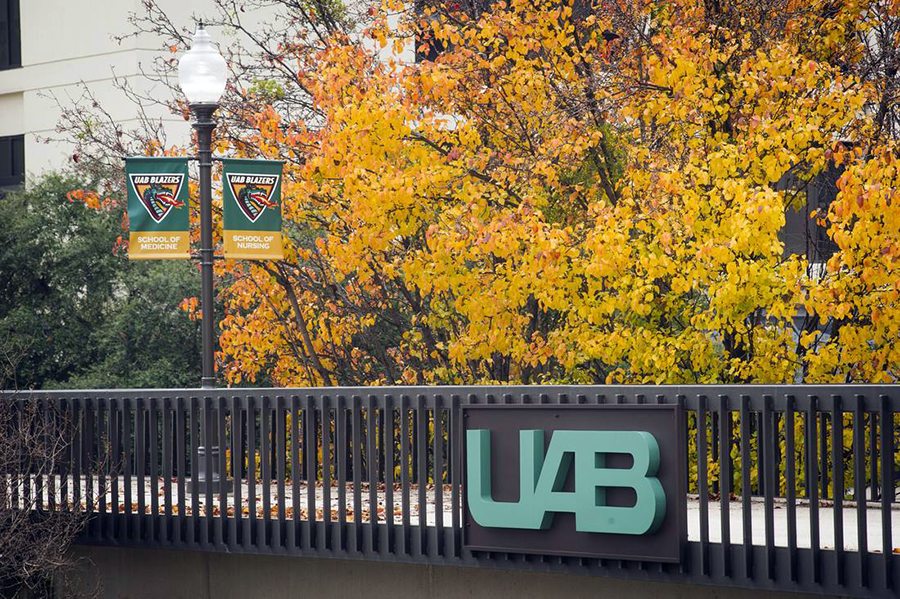


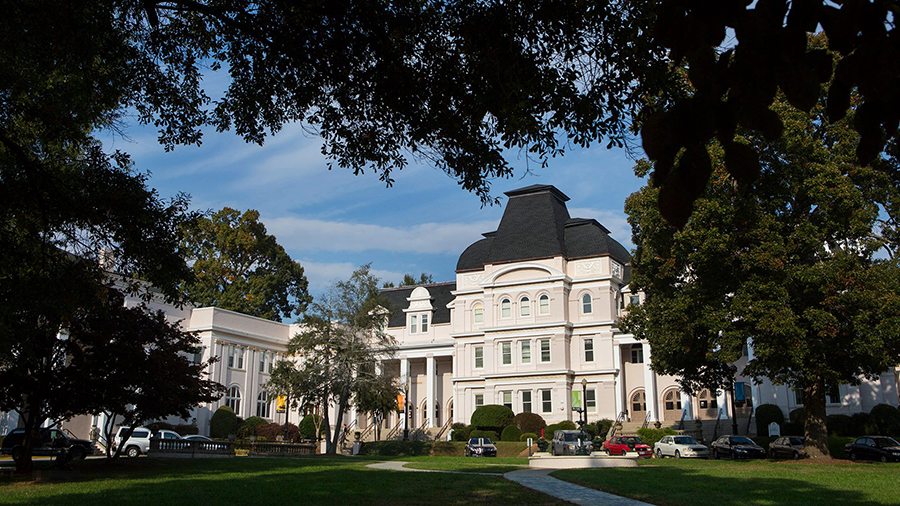
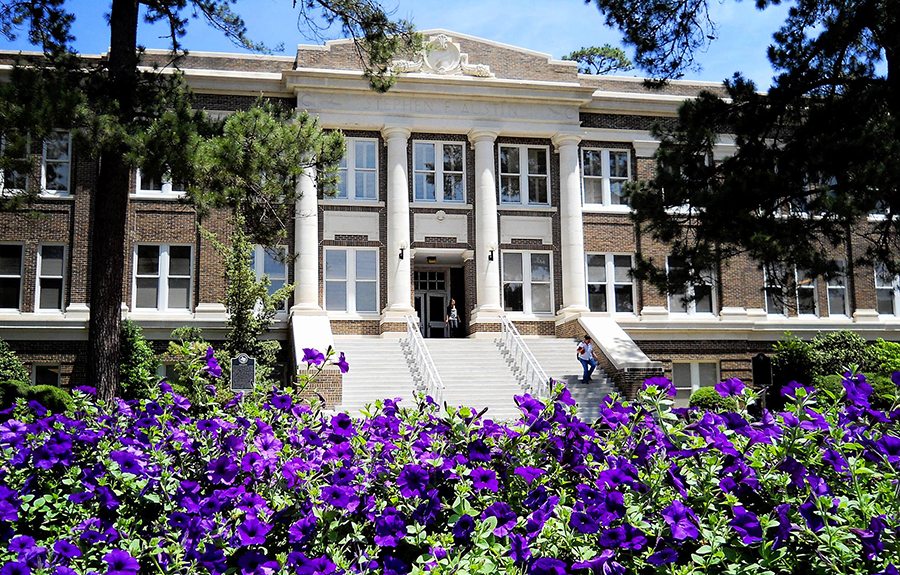
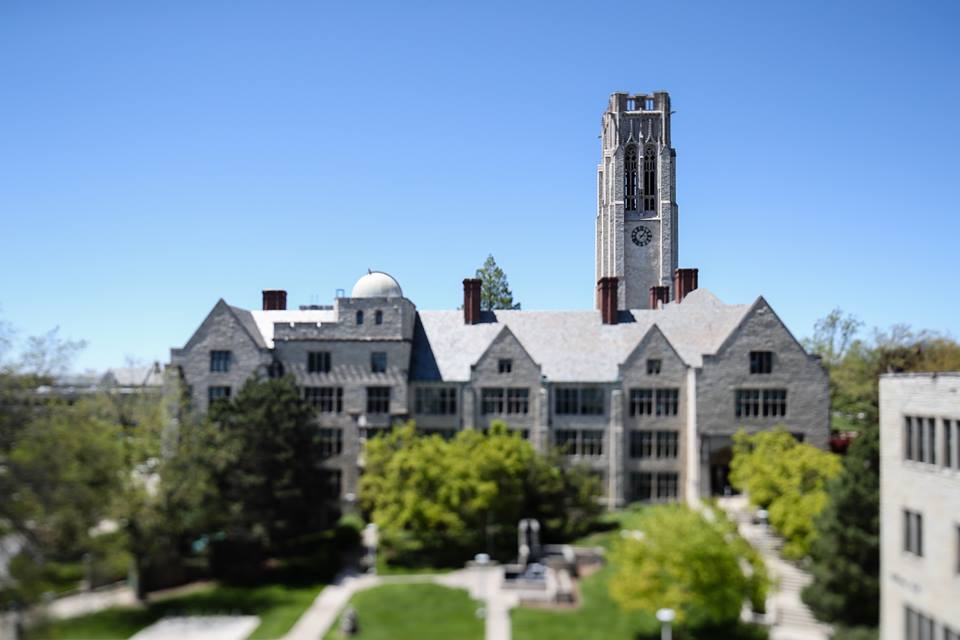
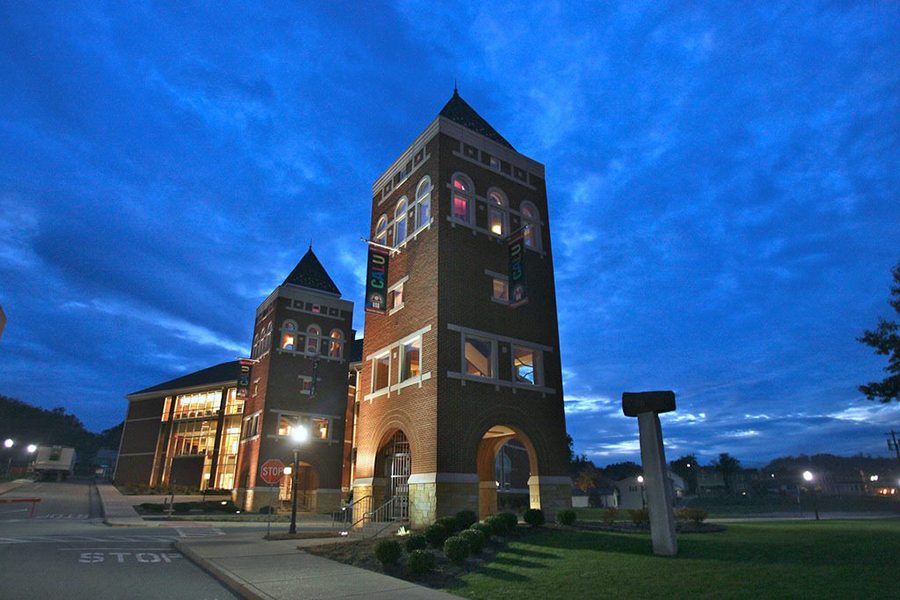
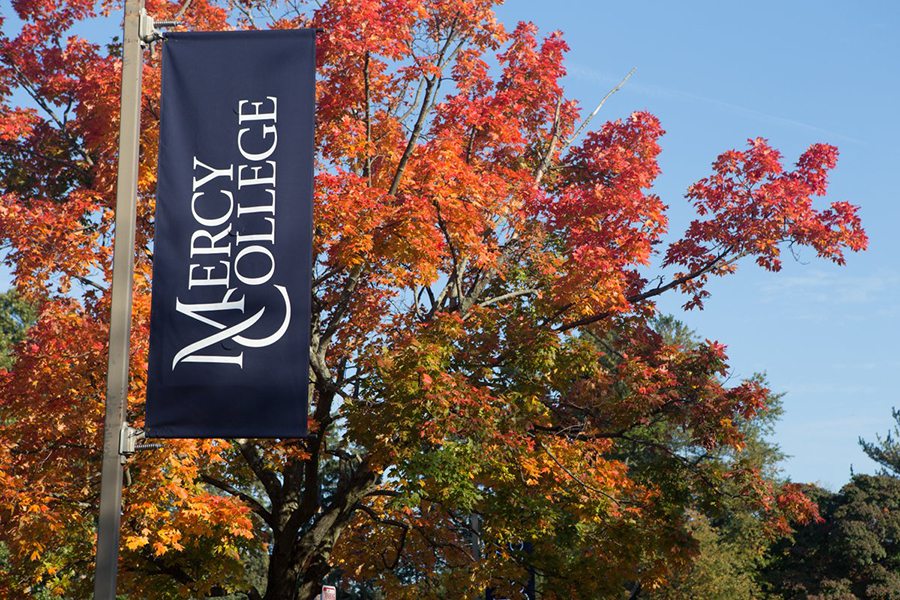



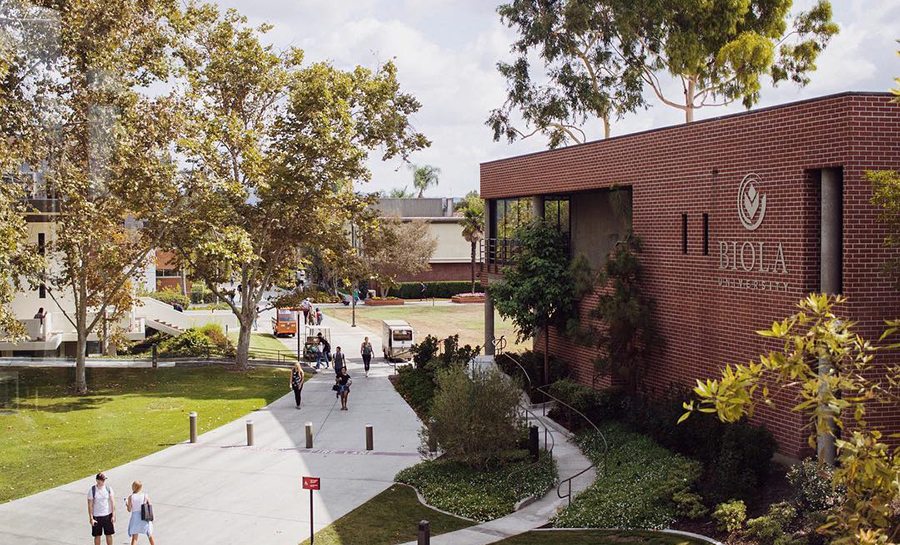
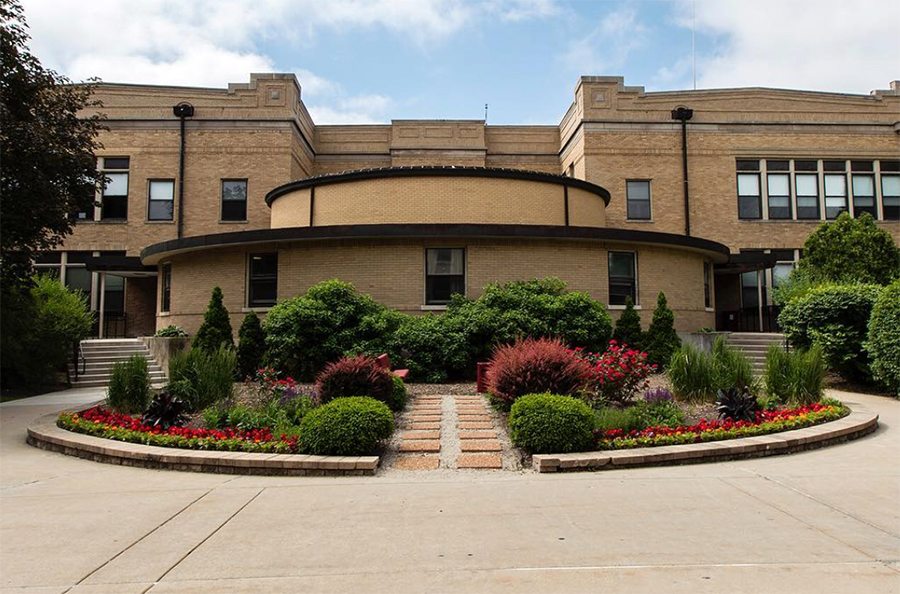



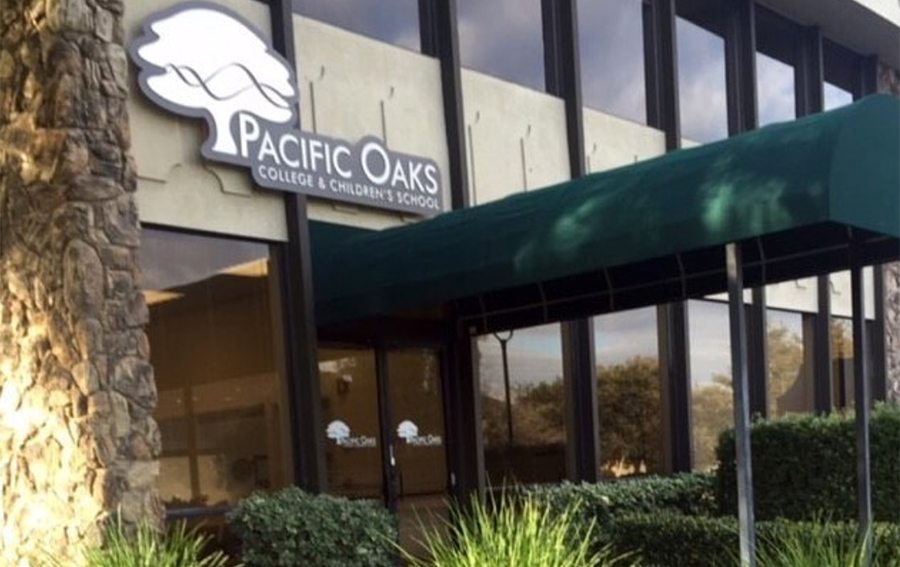
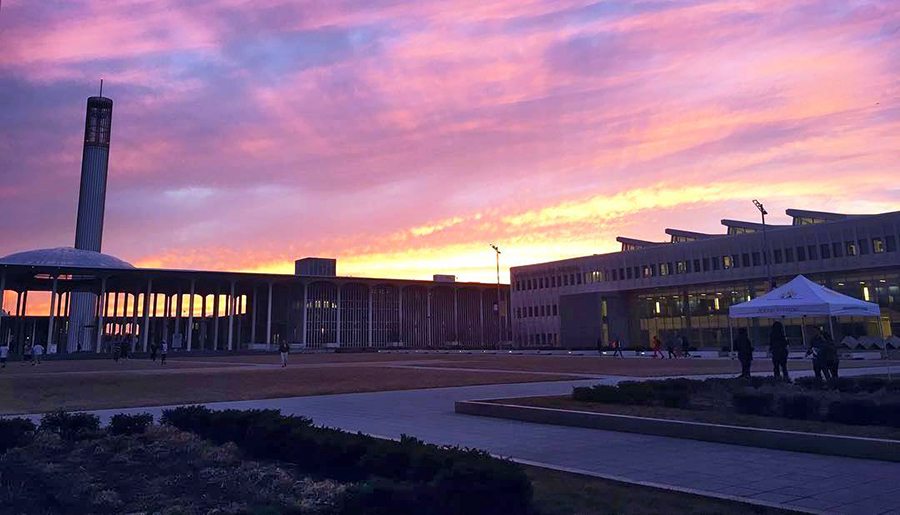




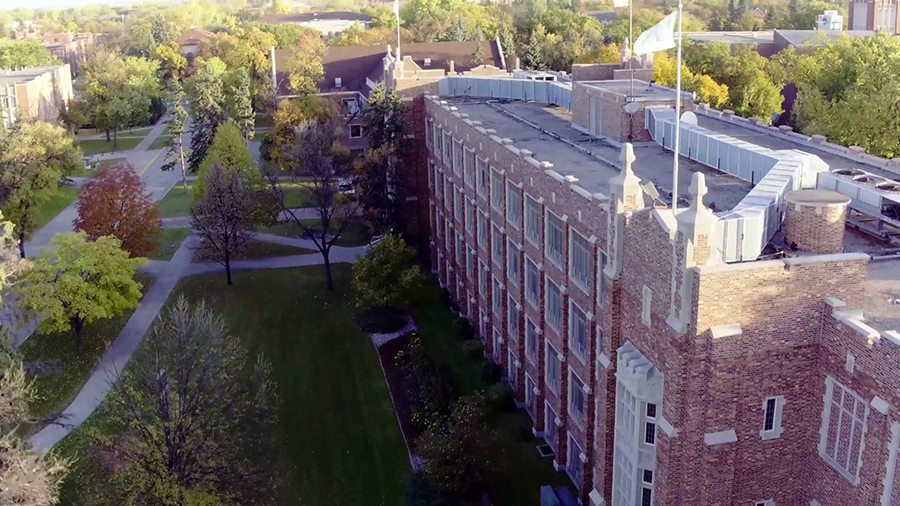
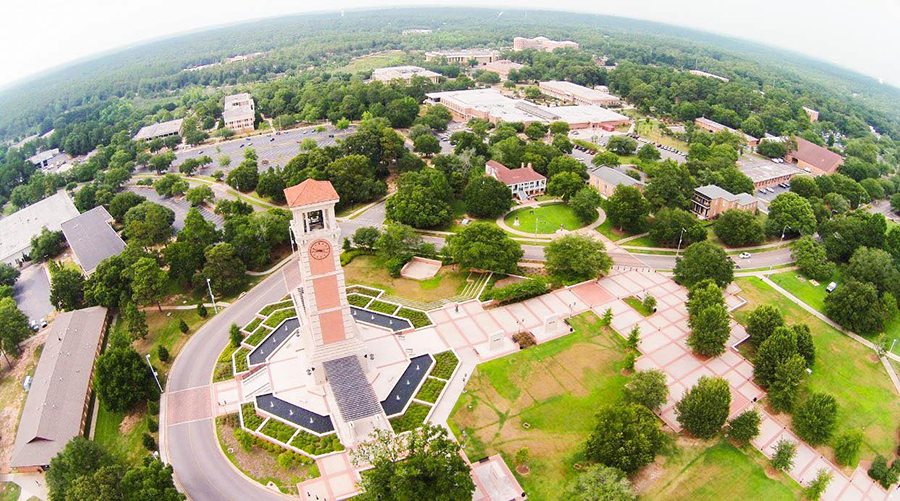
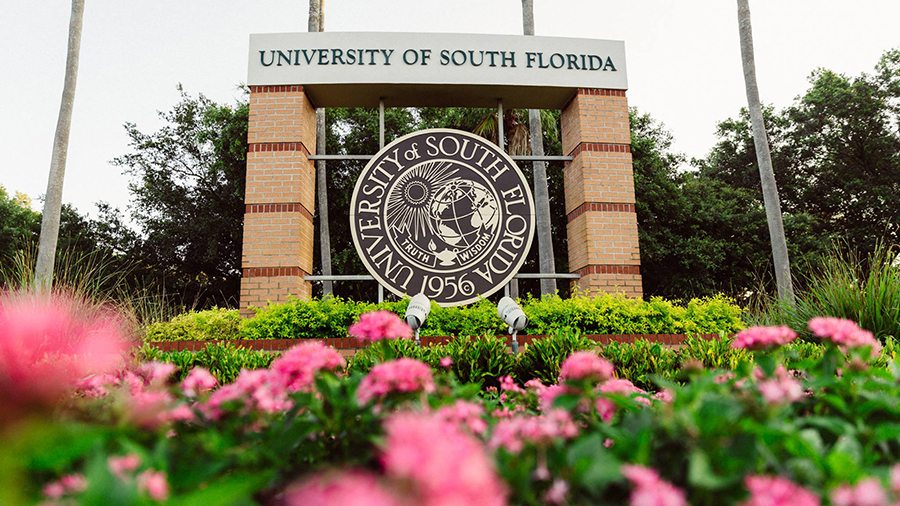








Comments are closed.